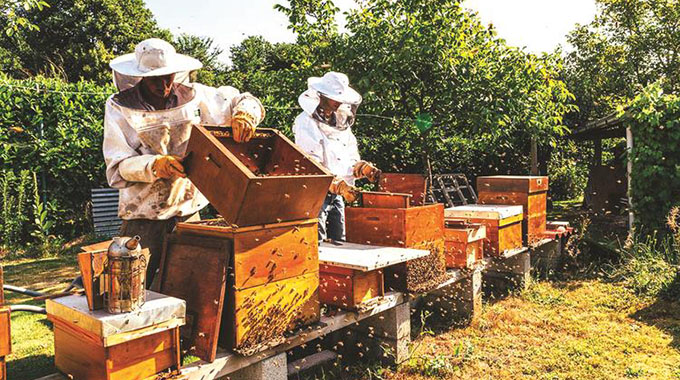Honey production rises as beekeeping industry holds steady

Fildah Gwati
The beekeeping industry has registered a 1,3 percent growth following a rise in the number of beekeepers, statistics released by the Ministry of Lands, Agriculture, Fisheries, Water and Rural Development in the crops, livestock and fisheries assessment report (CLAFA-1) pre-harvest show.
The number of beekeepers rose from 28 334 in 2022 to 28 725 last year, driven by significant growth in Masvingo and Manicaland provinces, the major honey producing areas in the country.
There are 148 753 beehives, with 95 001 of them colonised.
Reads the report in part: “Colonised hives account for 64 percent of the total number, indicating the growing interest in beekeeping among farmers and entrepreneurs.
“Among the colonised hives, 34 293 are modern hives, while 60 708 are traditional hives reflecting the diversity of beekeeping practices in the country.
“The honey production in Zimbabwe has shown substantial growth, increasing by 10 percent from 949 284 tonnes to 104,42 tonnes.”
The growth is attributed to the overall expansion of the beekeeping industry and increased hive colonisation.
On average, each hive yielded approximately 11kg of honey, highlighting the productivity and efficiency of beekeeping practices in the country.
Masvingo Province registered a significant growth in beekeeping whilst Manicaland remains the leading province in terms of both the number of beekeepers and honey production.
This demonstrates the province’s established position in the industry and its favourable conditions for beekeeping activities.
Lands, Agriculture, Fisheries, Water and Rural Development permanent secretary Professor Obert Jiri said there was need to consider best and sound restorative and ecosystem-based agricultural practices that safeguard the role of a variety of pollinators, including the bees, which play a critical role in local food production systems.
The growth of the beekeeping industry signifies the increasing importance of the sector in Zimbabwe’s agricultural landscape.
Beekeeping not only provides economic opportunities for farmers, but also plays a vital role in pollination and environmental conservation.
With continued support and investment, the beekeeping industry is poised to make further contributions to the economy and the sustainable development of the agricultural sector.
Trade statistics from ZimTrade show that exports of honey worldwide grew by 25,7 percent from US$2,3 billion to US$2,89 billion between 2020 and 2021. Some of the top world importers of honey include Germany US$365 million, United Kingdom US$151 million and France US$125 million.
Beekeeping is the art, business and science of rearing honey bees for production of honey and its valuable by-products while a bee-hive is a habitation constructed for bees, usually either dome-shaped or box-shaped.








Comments